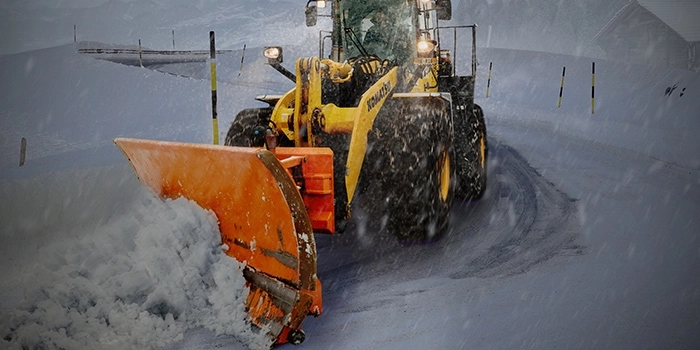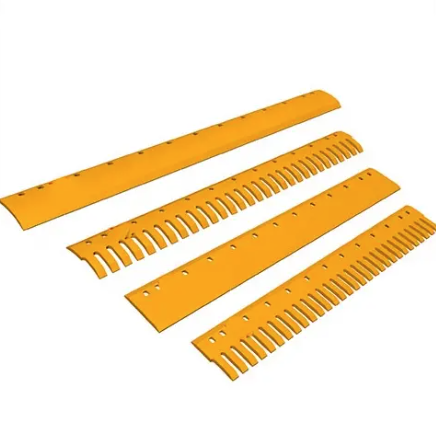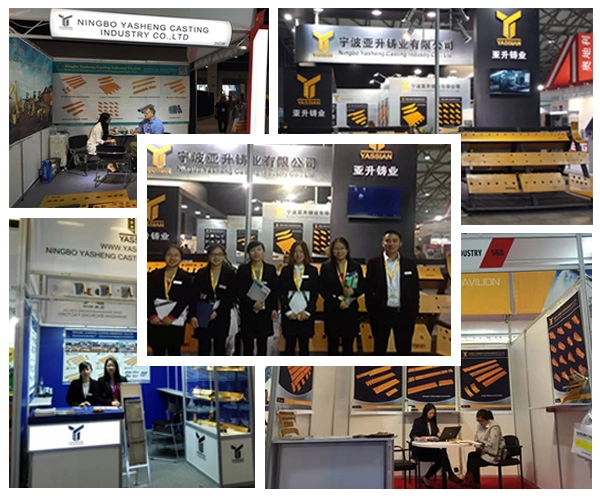- All
- Product Name
- Product Keyword
- Product Model
- Product Summary
- Product Description
- Multi Field Search

When winter arrives, graders face one of their toughest challenges — maintaining roads covered with ice, packed snow, and freezing slush. Choosing the right motor grader cutting edge isn’t just about durability; it’s about traction, surface safety, and efficiency under extreme conditions. The wrong blade can lead to uneven grading, excessive wear, and wasted fuel. In this guide, we’ll break down how to select the best cutting edge for winter and snow operations.

Snow-covered roads behave very differently from dry gravel or asphalt. Ice layers are harder and more slippery, and packed snow can become as dense as compacted soil. To remove these layers effectively, a cutting edge must:
Maintain sharp contact with the road surface
Prevent edge lift due to hard ice resistance
Withstand cold brittleness and impact fatigue
Standard carbon steel blades often fail quickly under these stresses, which is why choosing a winter-optimized edge is essential.

Serrated (or scalloped) edges feature a saw-tooth design that bites into compacted snow and ice.
Advantages:
Excellent penetration in frozen surfaces
Prevents blade “skating” on ice
Reduces need for multiple passes
80” (2032 mm) Excavator Serrated Cutting Edge
Best suited for hard-packed snow, frozen gravel roads, and icy intersections.
Curved grader blades provide a smoother rolling action for snow removal.
Advantages:
Better flow of snow off the moldboard
Less resistance for fuel savings
Compatible with carbide inserts for longer wear
5D9559S 4Z9020 Curved Serrated Cutting Edges
These are ideal for municipal snow removal and general winter road maintenance.
Carbide edges are the top choice for operators dealing with abrasive winter conditions.
Advantages:
Extremely long lifespan — up to 4–6 times longer than standard steel
Resistant to chipping and cracking at low temperatures
Consistent performance across varying snow densities
Tungsten Carbide Cutting Edges
Recommended for heavy-duty highway snow clearing and extended winter operations.
Flexible edges like rubber or polyurethane are designed to protect delicate surfaces (e.g., airport runways or decorative pavements).
Advantages:
Prevent surface scratching
Quieter operation
Ideal for slush and light snow removal
These are best used in urban or sensitive environments, not heavy ice removal.
Winter Surface Type | Recommended Cutting Edge Type | Key Benefit |
Packed snow / Ice | Serrated or Carbide Insert | Maximum penetration and traction |
Fresh snow / Slush | Curved or Rubber Edge | Smooth clearing and surface safety |
Mixed winter surfaces | Carbide Insert with Curved Edge | Balanced wear life and performance |
Delicate or paved areas | Polyurethane Edge | Surface protection |
Before installation, ensure:
The edge matches your grader moldboard bolt pattern
Cutting edge torque meets manufacturer specs
Blade sections are evenly tightened to avoid uneven wear

Rotate or flip reversible edges regularly to extend lifespan
Inspect after each storm for chipping or cracking
Use correct storage — avoid moisture accumulation when idle
Monitor edge angle — a 30° to 45° attack angle is generally optimal for snow clearing
Preventive maintenance not only extends the life of your blades but also maintains efficient grading and operator safety.
As an experienced motor grader cutting edge manufacturer, we understand how much performance depends on metallurgy, heat treatment, and precise edge geometry.
Our winter-rated cutting edges are:
Made from through-hardened boron steel or tungsten carbide-tipped materials
Designed to perform in temperatures down to -40°C
Custom-fitted for all major grader brands like CAT, John Deere, Komatsu, and Volvo

Choosing the right cutting edge for winter requires understanding your local conditions, machine type, and performance needs. Serrated and carbide insert blades are unbeatable for ice and hard-packed snow, while curved and rubber edges are better suited for lighter snow and paved surfaces.
If you're looking to improve efficiency and blade life this winter, consult a professional manufacturer before the cold sets in.
Contact us today to get a customized motor grader cutting edge solution for your snow and ice operations — built for performance, precision, and durability in every winter challenge.